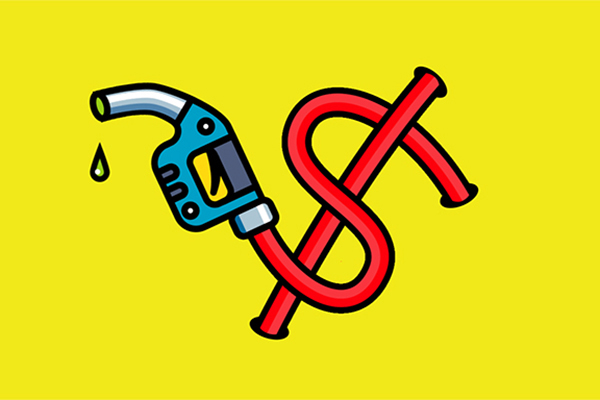You just found $500 you want to invest. What do you do?
With so many options—from stocks, bonds and mutual funds to retirement accounts, all with their own risks—this choice can be a difficult one.
But even though planning ahead is crucial, nearly half the families in America have no retirement account savings, according to a study from the Economic Policy Institute. Fortunately, it’s never too early—or too late—to put your finances in order, whether that means making serious investments or simply resolving to save a little each month.
Sometimes, the hardest part about making a positive change is getting started, especially when it comes to saving money. Just like sticking to a healthy diet or your gym regimen, investing takes a little planning and dedication. These five financial strategies may be just the place to start.
 Pay Off Your Credit Cards
Pay Off Your Credit Cards
Few decisions can have as positive of an impact on your finances as paying down your credit card debt. Keeping a low balance may not only help improve your credit score, it may also allow for more flexibility with spending. It’ll give you the peace of mind that comes from knowing you’re not increasing your debt, too.
“Start off the month by paying your debt,” says Philip Olson, a certified financial planner. Of course, it’s important to pay for your basic needs—housing, groceries, utilities and insurance—before allocating your money elsewhere. But after that, don’t forget to take a hard look at your debt. “When people wait until the end of the month to address their credit card bills, there’s rarely anything left,” says Olson.
If you’re having trouble paying off debt, consider asking your card issuer for a reduced interest rate, or canceling cards that carry an annual fee. You may also want to consider using the cards less often and paying off the balance at the end of each billing cycle, to ensure that no interest carries over.
Contribute To Your 401(k)
Once your consumer debt has been reduced to an amount you feel comfortable with, Olson recommends thinking about retirement. One place to start investing for your future is a 401(k)—an employer-established retirement savings plan. Companies may offer to match your contributions to a 401(k) to a certain percentage. If so, Olson says, take advantage, as “it’s almost always free money.”
Olson recommends contributing at least as much as your employer is willing to match. Then you’ll have to decide where to invest that money. Choices vary from company to company, but the guiding principle should be the same: Establish the level of risk you’d like to take and invest accordingly.
Consider An IRA
For workers who don’t have access to an employer-sponsored 401(k) plan, an IRA (Individual Retirement Account) is another popular solution. There are two kinds: traditional IRAs, where your money is taxed upon withdrawal; and Roth IRAs, where the money is taxed when you contribute.
Both kinds come with restrictions. For example, if you’re under 50, the maximum annual contribution to a traditional IRA is $5,500, and withdrawals before the age of 59½ come with a 10 percent penalty fee. But Roth IRAs offer some ways to make an early, penalty-free withdrawal, such as using some of the money to pay for your first home.
 Look Into A 529 Plan
Look Into A 529 Plan
If sending your kids to college is a high priority, says Olson, a 529 plan is good place to start assessing options for future education costs. For parents with young children, this could be an invaluable investment, as the cost of college has risen much faster than the rate of inflation.
There are two types of 529 plans, which vary from state to state. The first option allows parents to dedicate funds within prepaid tuition plans to purchase future credits at participating universities. The second, more common 529 plan allows investors to set aside money that can fund a variety of college expenses, including tuition, room and board, books and other fees.
Try A Mutual Fund
For those interested in a slightly more aggressive form of investing, but still wary of the stock market, a mutual fund could be a good middle ground. When you buy into a mutual fund, it’s like you’re buying stock in many companies at once. You get the advantages of a diversified portfolio without the legwork of making a multitude of individual investments.
“Mutual funds are really great for beginning investors,” says Olson. “They give you the opportunity to share in the growth of the stock market without having to pick any stocks, real estate or bonds.”
Diversification makes mutual funds more stable investments than playing the stock market, though you’ll want to research your choice. “If you don’t know where to begin,” says Olson, “I strongly advise talking to someone who has some expertise in your situation. Sit down with a banker or advisor and they could help guide you.”
When planning for your future, every penny counts. Visit geico.com to see if you could save on car insurance. Get a free quote today.
Read More: Learn more about saving money with our Budget Basics 101.










Lawrence Lewis says,
Very helpful
Bonnie Gartner says,
I have Geico and have had for a few years.
Nancy says,
Thanks for the info l am new to investing but also need to save for retirement.
Laurel George says,
Thank you geico. I’ve learn so much about investing.
Jose Gonzalez says,
I am surprised you did not mention another option for investing. I have been investing in cryptocurrencies now for just over a year and have great returns. Admittedly I am new to this asset class so I am doing so conservatively, nonetheless, I am achieving about 400-600% returns. Wall Street has been purchasing Bitcoin and Ethereum now for over a year now and well-known names like Elon Musk have also jumped on the bandwagon. Please understand, I am not being critical here, I merely aim to help spread the news about this opportunity for lower-income individuals like myself. Thank you for taking the time to read this.
Mariel says,
Geico basic
Kenneth Kepler says,
Exchange-traded funds for many of us are more flexible and less expensive than mutual funds. You should encourage them as well.
Gregory jones says,
How do I start my investments ?
G. Smith says,
How come you did not mention precious metals?
Huy Nguyen says,
Yes, it would be pretty helpful if Geico will decrease our premiums so We can afford to take care of our retirement. Especially we are insured with Geico for a while without any tickets nor issues . Thanks
jonthan moore says,
I am 67 years old.
daniel zuniga says,
Good
Terry Rose says,
Been following these steps for years. Staying with GEICO has been the smartest. Other insurance agents just shake their head and leave. My Consumer Economics degree (KSU ’90) has allowed me to give advice such as this. And also to tell folks about GEICO’s great insurance products. Commercials are simply the best. Better than all the rest.
Tommy says,
“It’s hump day!” Best TV commercial ever!
David Adewuyi says,
Great informative advice. Is it possible to sit down with a Geico professional to discuss my possible options?
Jenai Kiboi says,
I want to make life insurance so engaged someone past the way, accidentally, rent, things that coverage my whole family wife, daughter, son included me the father of the family or saving pond
Mohamed A Etheimine says,
Thanks
Margie says,
Not just life insurance,
Life Insurance with LIVING BENEFITS
with out cost.
HUGUES A. FRANCOIS says,
I LIKE THAT